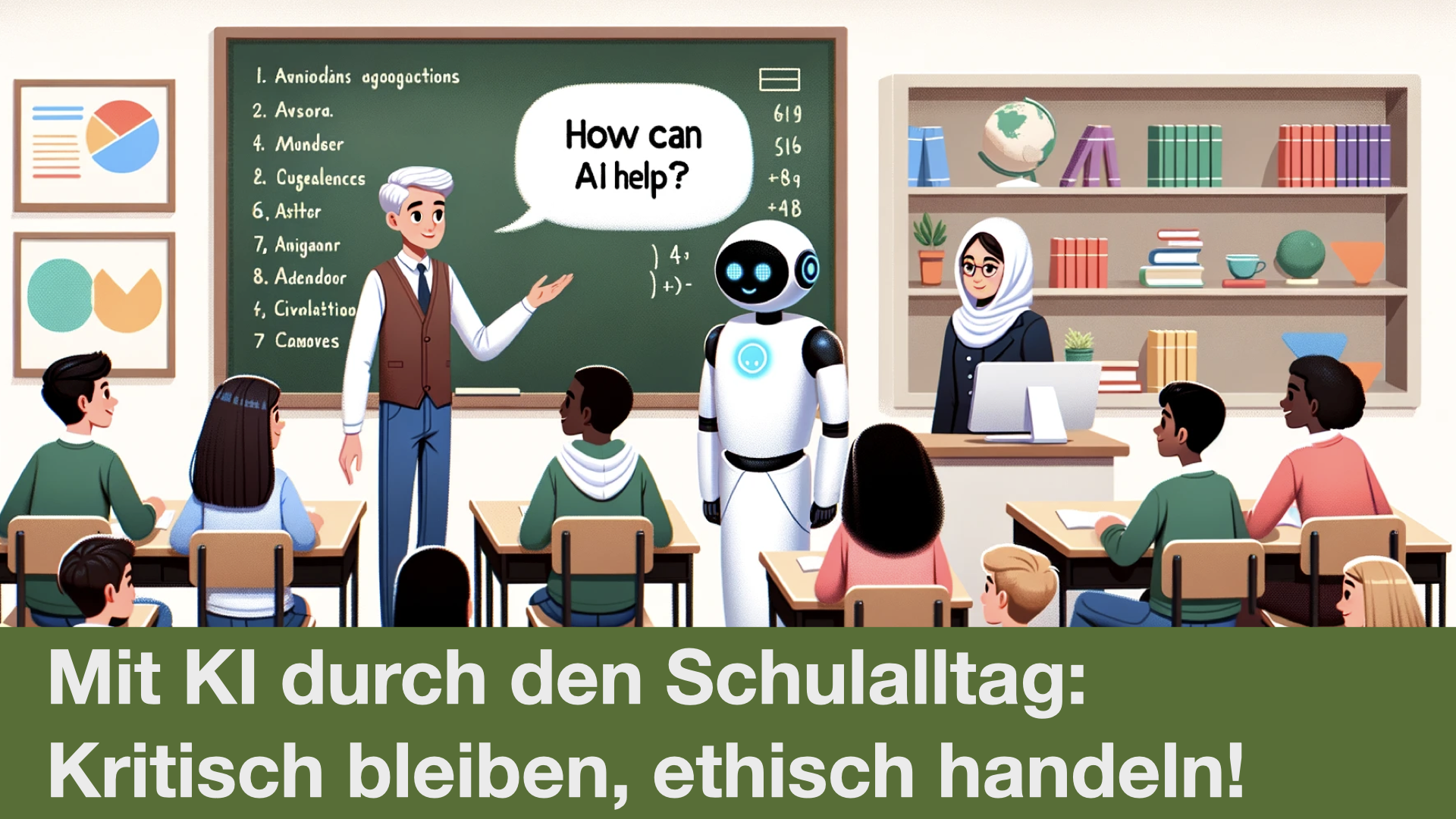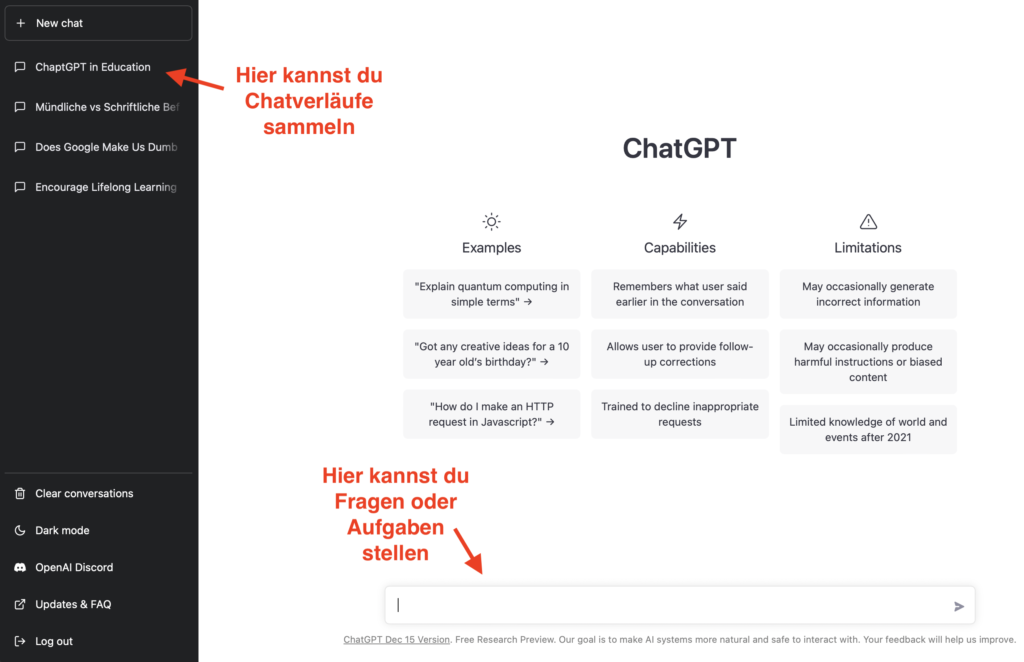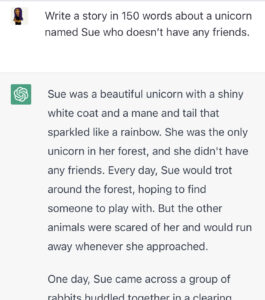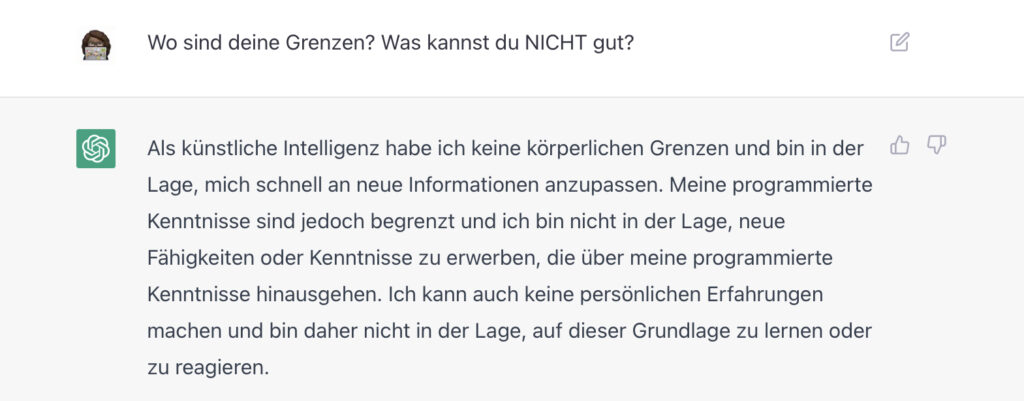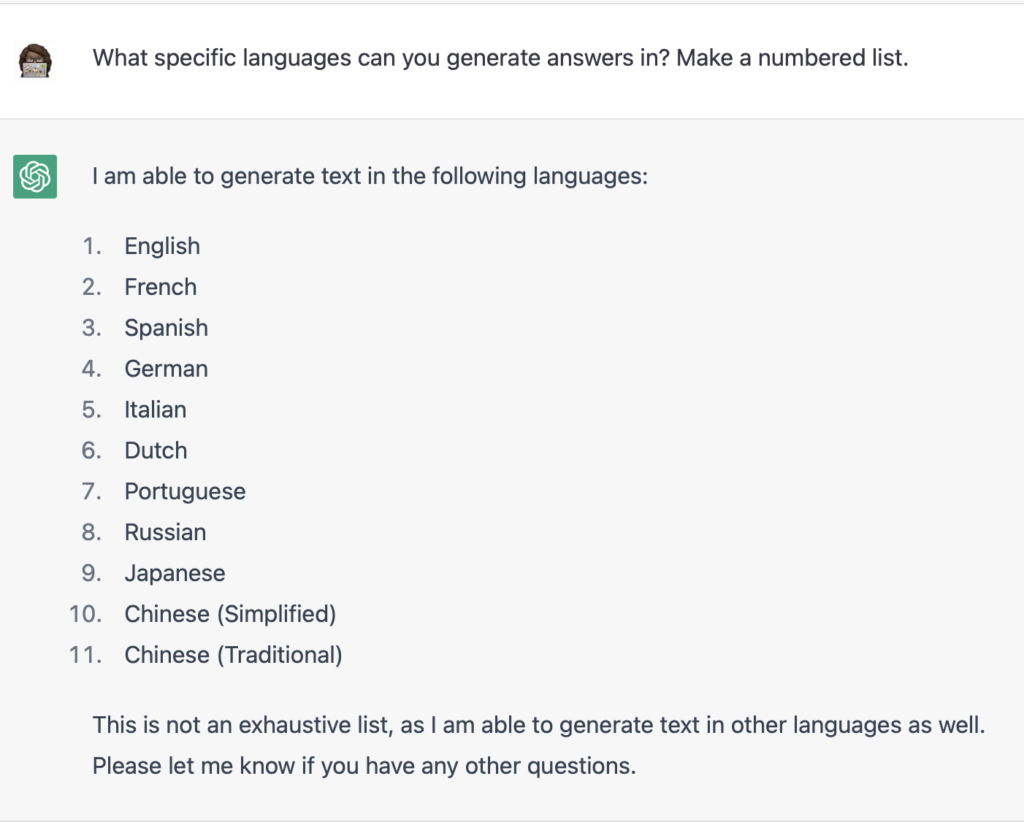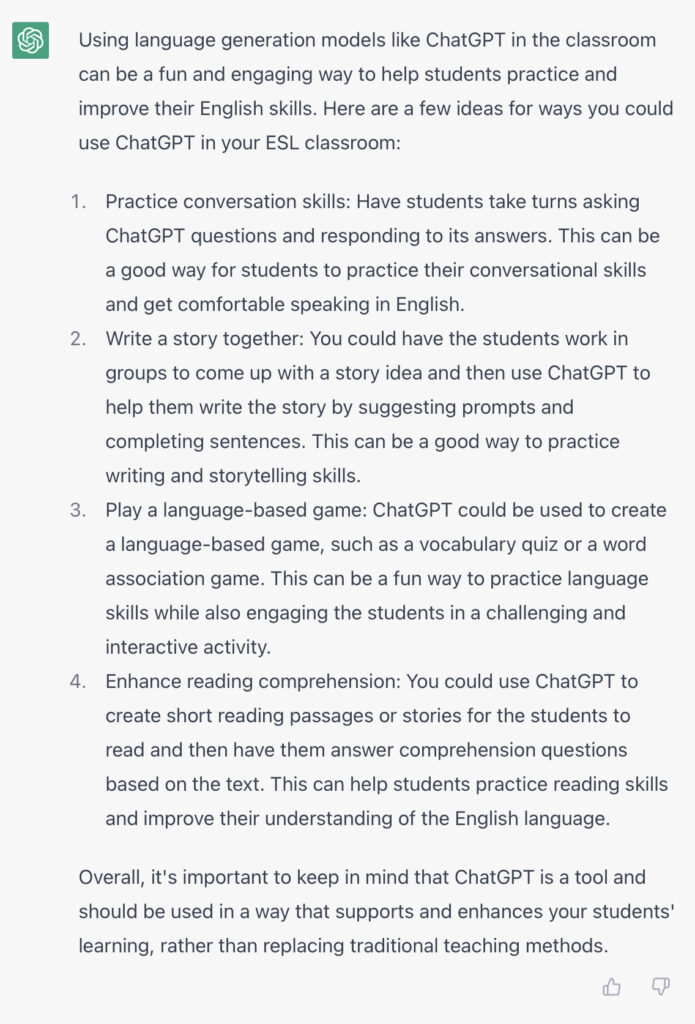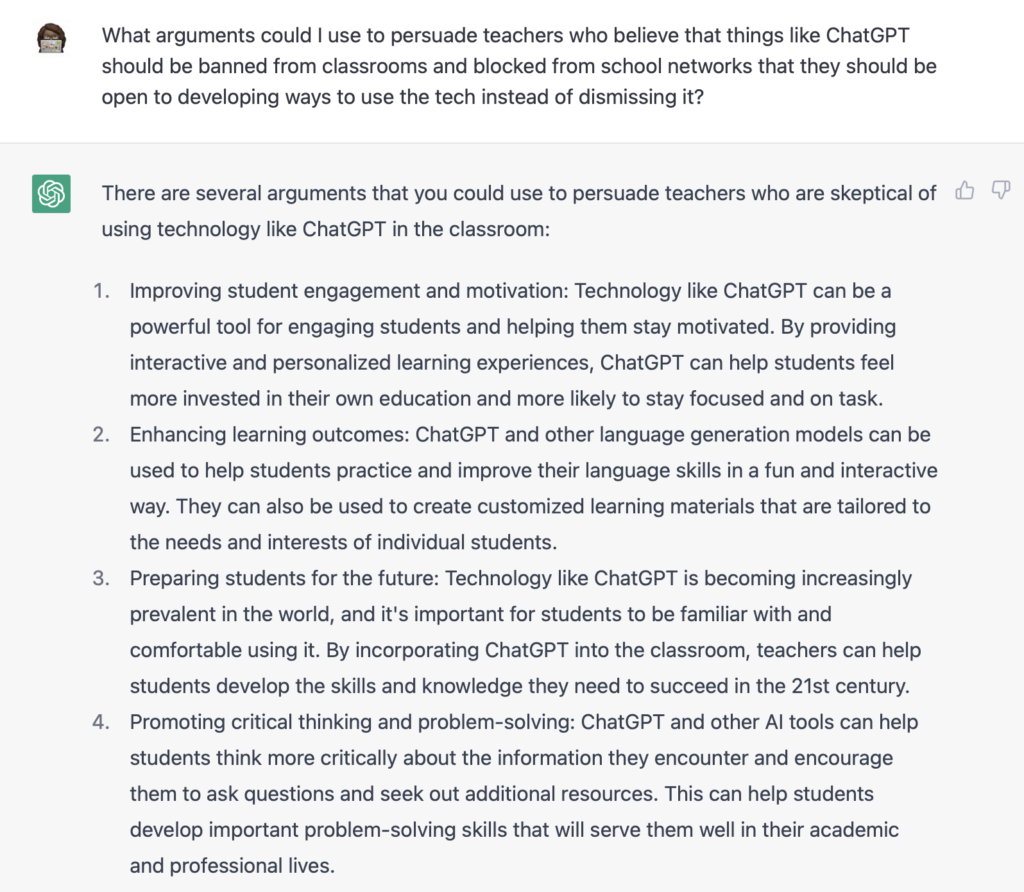Am Montag hatte ich zum ersten Mal die Gelegenheit, mit Oberstufenklassen über KI und ChatGPT zu sprechen. An meiner Schule wird das Thema im Informatikunterricht und im Fach Digitale Grundbildung behandelt, aber auch Klassen, die dieses Fach nicht haben, sollen gebrieft werden. In Form einer 50-minütigen Präsentation im Festsaal habe ich alle Klassen eines Jahrgangs angesprochen.
Inspiriert von den Aussagen und Learnings der Organisation Critical AI und nach Inputs von Anna Mills und den Podcasts The Bot Brothers und The Creative Classroom von John Spencer, konzentrierte ich mich auf die kritische Auseinandersetzung mit KI und ihren Auswirkungen sowie auf die Förderung der akademischen Integrität. Wie wollte ich motivieren? Hier sind die Folien, die ich verwendet habe.
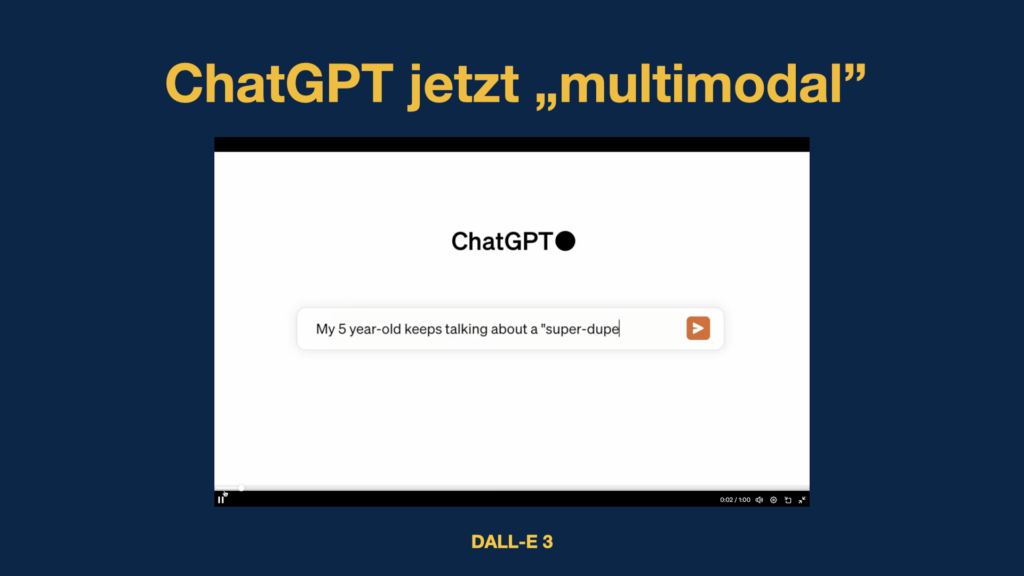
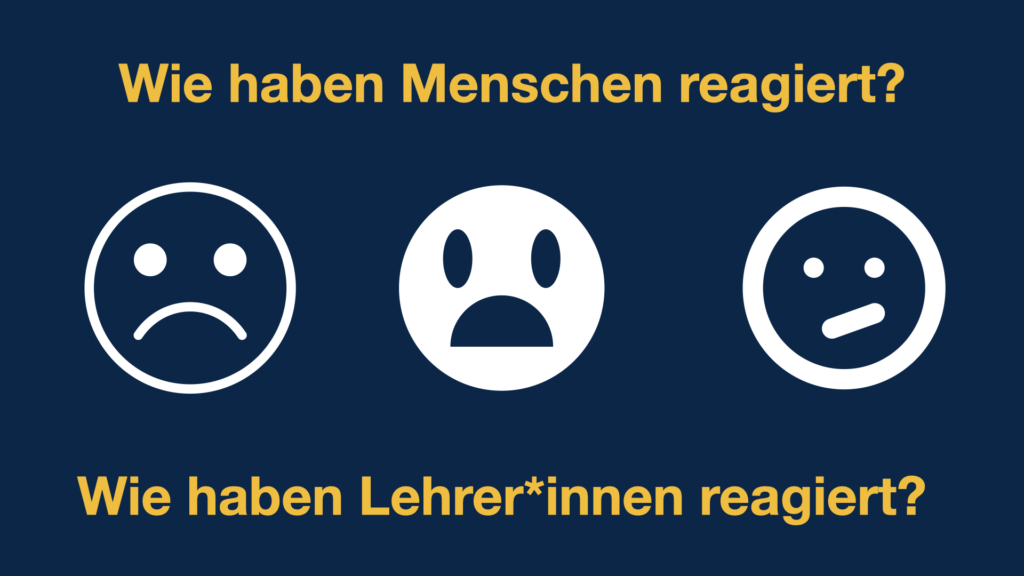
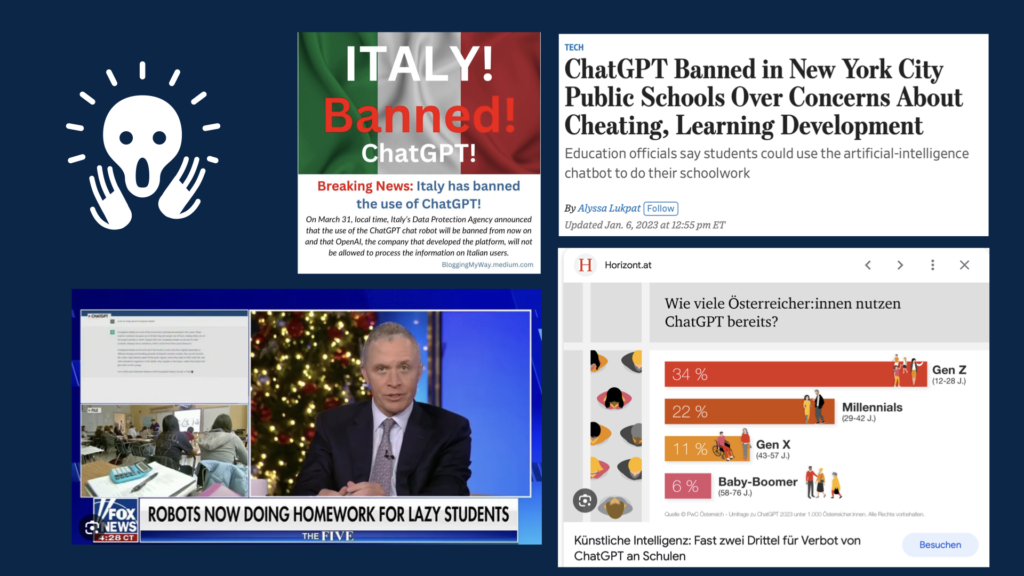
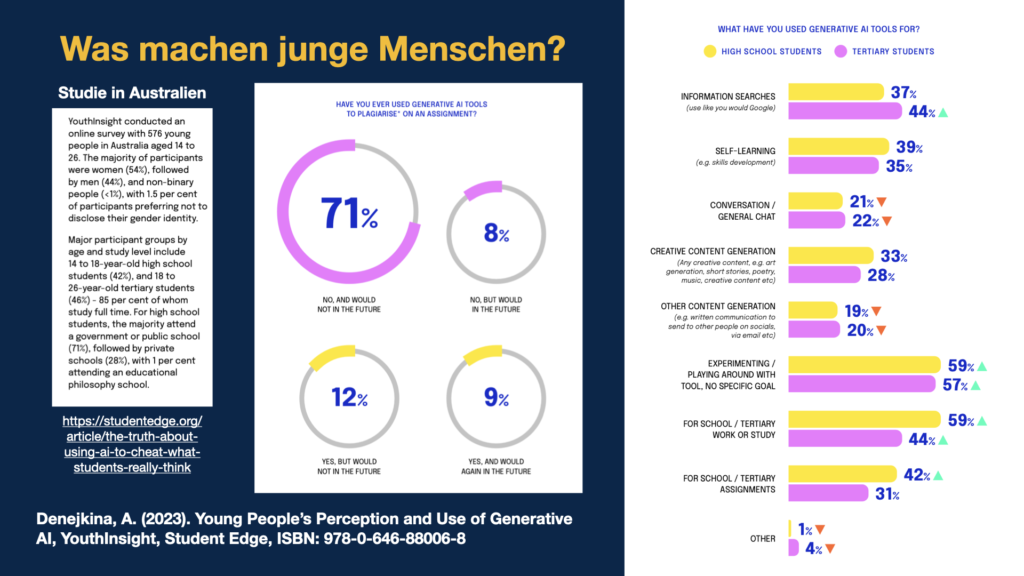

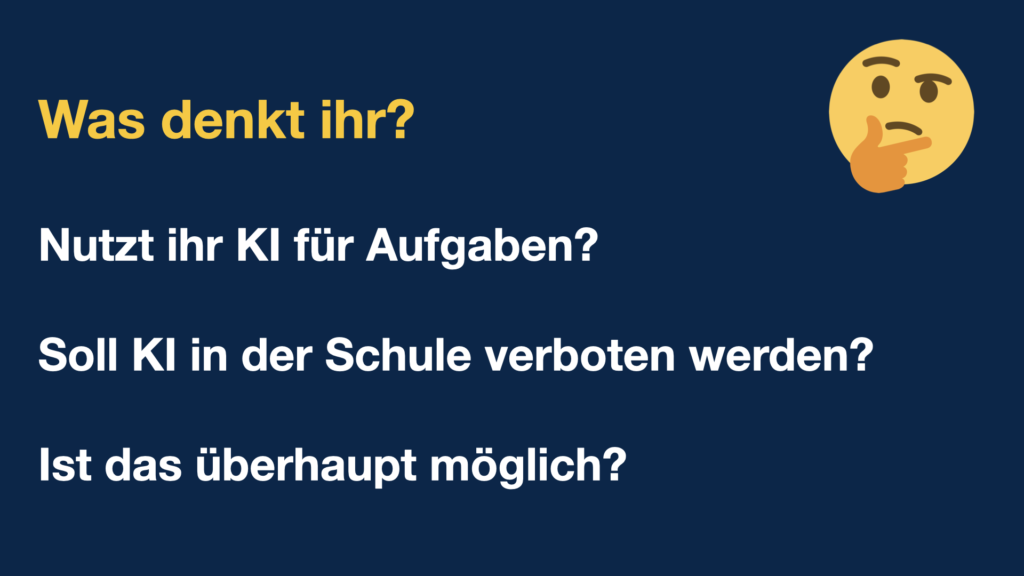
Argumentation:
– Beispiel ChatGPT wird multimodal (Sprachsteuerung, Bilderzeugung)
– Reaktion der Lehrenden auf KI
– Wie nutzen Jugendliche die KI tatsächlich? Studie aus Australien
– Erklärung, warum der Vortrag stattfindet – KI Kompetenz ist wichtig
- Generative KI Tools machen oft Fehler – Sprachmodelle berechnen Wahrscheinlichkeiten aufgrund von Mustern in Datenquellen. NICHT als Suchmaschine verwenden, ohne die Ergebnisse zu verifizieren. Beispiel einer Halluzination
- Generative KI-Tools spiegeln Vorurteile und Stereotypen wider.
- Es gibt viele offene Fragen und Kritikpunkte
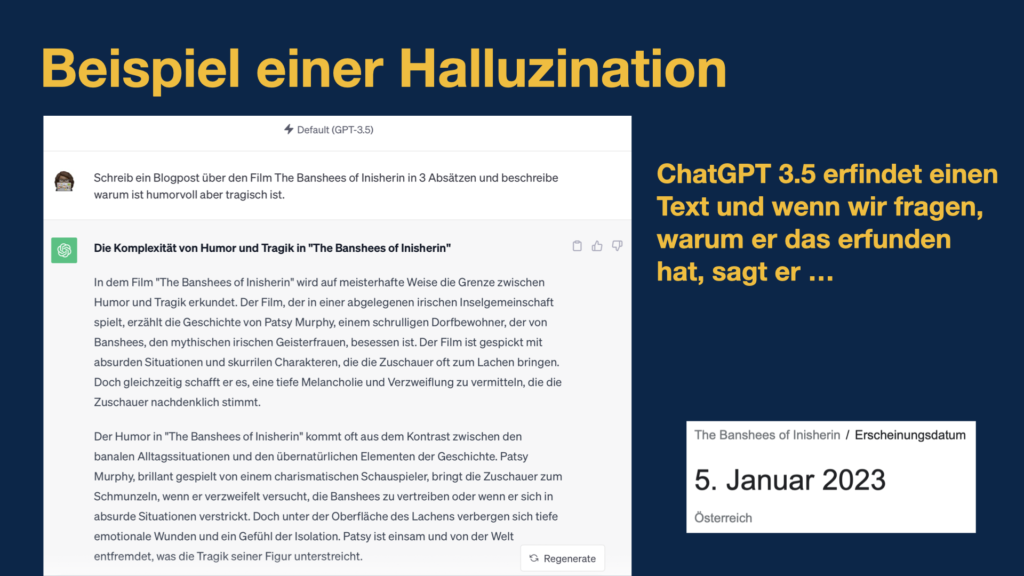
Im Schulalltag verhalten sich Lehrkräfte unterschiedlich: Einige sind Early Adopter, andere ändern ihr Verhalten viel später. Manche verbieten es, andere probieren es aus und setzen es im Unterricht ein. Letztere entwickeln Regeln und passen ihre Aufgaben an.
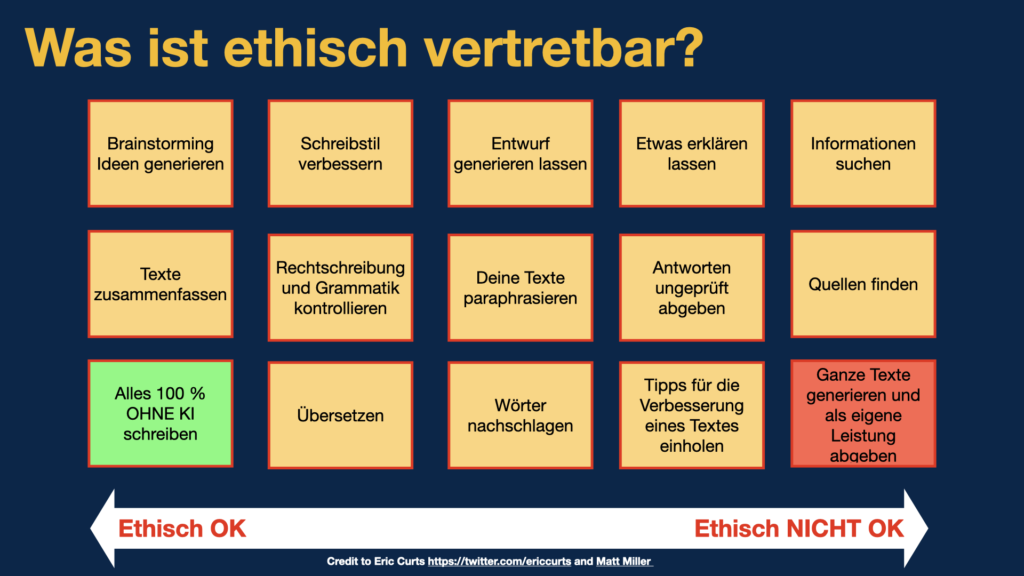
Was bedeutet akademische Integrität? Ist die Verwendung von ChatGPT und AI ein Plagiat? Was ist ethisch vertretbar? Was kann mir als Entscheidungshilfe dienen? Wie kann ich zitieren?
Die Nutzung von KI-Tools sollte ein TEIL des Lern- und Arbeitsprozesses sein und NICHT 100 % unserer Arbeit übernehmen. Wenn wir Abkürzungen nehmen, verpassen wir wertvolle Erfahrungen. Oft sind Phasen notwendig, in denen wir verwirrt sind oder uns anstrengen müssen, um etwas zu verstehen oder zu verinnerlichen.
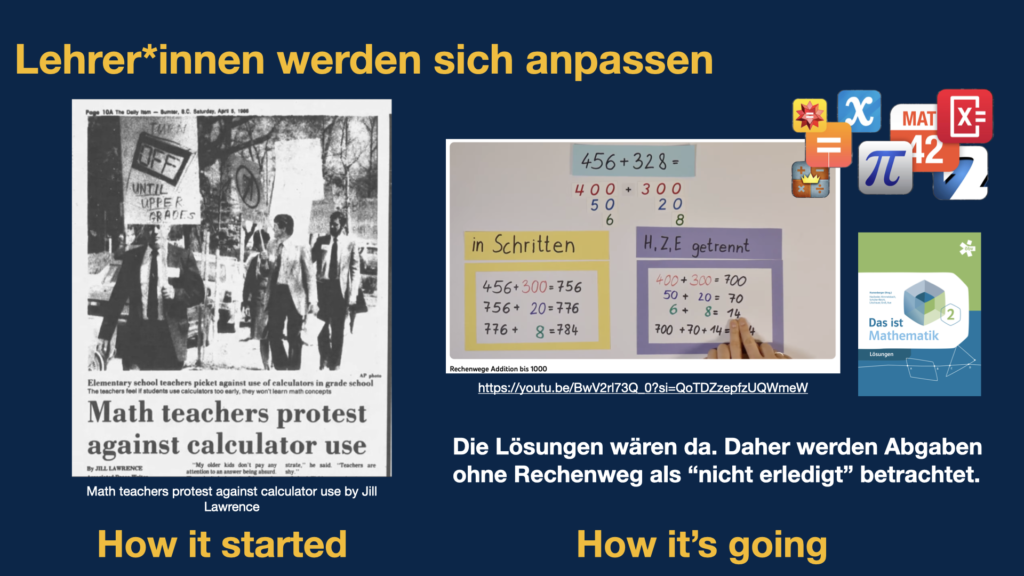
Letztendlich werden sich die Lehrerinnen und Lehrer anpassen und den „Rechenweg“ sehen wollen. Sie werden andere Aufgabentypen entwerfen, Fragen stellen und wissen wollen, wie eine Arbeit entstanden ist.
Es ist wichtig, eine eigene „Stimme“ zu entwickeln. Dies geschieht nur, wenn man viel in der Zielsprache schreibt. Aber es lohnt sich, eine persönliche „Sprache“ zu entwickeln.
Fazit:
- Nicht unerlaubt verwenden
- immer fragen, was erlaubt ist
- Ergebnisse immer überprüfen
Wie kam es an? Subjektiv betrachtet, denke ich, dass ich es geschafft habe, die Hauptbotschaft zu vermitteln. Manche Jugendliche sagten, es war ihnen nicht bewusst, dass die KI Fehler machen kann. Mission accomplished? Mal sehen. 🙂
Alle Folien können hier heruntergeladen werden.

